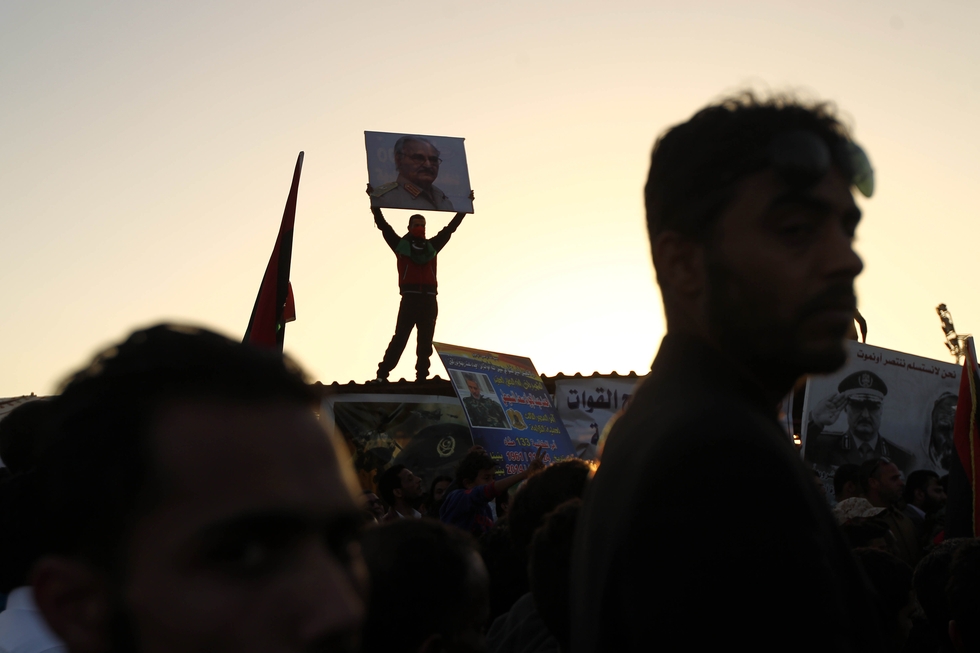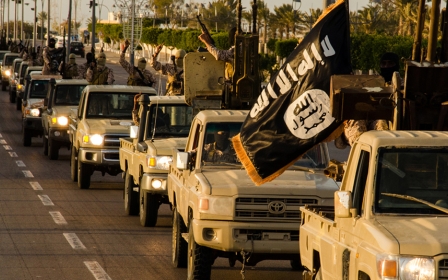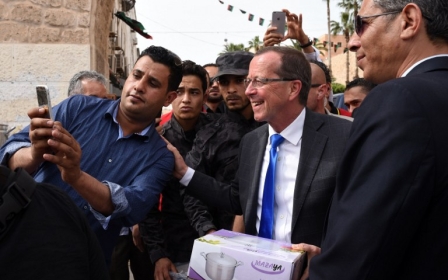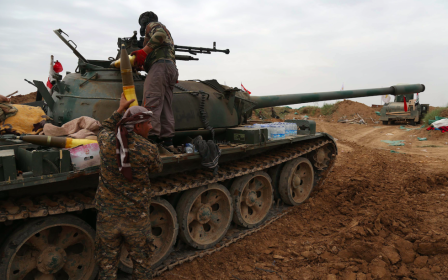Stability in Libya key to stopping IS spread: Analysts

Libya could be used as another base for the Islamic State (IS) group if political stability is not achieved in the country, experts have warned the UK parliament.
Analysts from the International Crisis Group were quick to stress that even if the militants were defeated in Syria and Iraq the group could "morph" into something else if the threat was not tackled in Libya as well, dubbing IS a “hydra-headed [group] in some ways”.
However, analysts were also quick to warn that the UK should not “bully” Libya’s fragility with concerns raised that any military intervention against IS could actually buoy the group and “undermine a very shaky political reality”.
Analysts from ICG were being questioned by a select committee on Wednesday on the future of IS in the Middle East and what form British involvement should take. While the probe was initially about UK’s participation in the anti-IS military coalition in Syria and Iraq, questions quickly turned to Libya.
Conservative MP James Gray was focused on what would happen to the group if they suffered heavy defeats and loss of land in Syria and Iraq, and if that would mean the group’s total defeat.
“Let’s imagine IS has been defeated, what happens next, do they sit and wait, do they go to Libya, do they set up elsewhere?” he asked.
“If we think by destroying them in Mosul and Raqqa, albeit with huge destruction of buildings and people, if we believe that will win the war, my god let’s do it. If on the other hand all we are going to do is spread it elsewhere in the world, then let’s not.”
Director of Multilateral Affairs at the International Crisis Group Richard Atwood replied that a considerable loss of territory for IS would weaken the group, but would not ultimately destroy it.
“We think the defeat is some way off, and we would have to qualify what defeat meant, but all this notwithstanding, the identity of the movement would change,” he said.
“It is hydra-headed in some ways, but its base is definitely Iraq and Syria. It would morph into something else because the conditions that allowed it to arise aren’t changing but what the movement would look like is very difficult to say.”
It was the future of Libya, however, that seemed key to whether or not a defeat in Syria and Iraq would leave IS without a key power base.
Libya expert Claudia Gazzini told the committee that IS currently controlled a 200km stretch of Sirte in Libya, despite it not being a traditional stronghold for militant groups in the country.
“The expansion they have had in Libya, which is considerable in the sense that they do control a territory of about 200km along the Libyan coast from Sirte, nobody would have thought two years ago that they would have managed,” she said.
“[IS] became stronger here because of a series of local factors - local crises has opened doors.”
She also said the IS presence in Libya was not dependent on funding from the group’s main footholds in Syria and Iraq.
“They are equally able to extract taxes and secure funds through their local businesses in their little local territory," Gazzini said.
“It is not entirely dependent for its survival on what happens in the motherland what it is dependent on for its survival in this peripheral area is an ongoing state of crisis. As long as there is an ongoing political security crisis we can see IS existing, remaining [in Libya] even if the motherland is defeated.”
Gazzini added that the current UN-backed presidential committee in Libya was still facing a number of challenges, including a lack of unified political support, a lack of a united military backing, and Libya’s weak economy.
“There is the risk that foreign military support in the name of counter-terrorism in this current stage could not only rally various people against it but also undermine a very shaky political reality,” she said.
“Certainly the arrival of seven members of the nine-man presidential council in Tripoli is a positive sign, they were welcomed by the residents there. However, this should not make us think that this political transition is easy. It is still very contested inside Libya. The efforts of your country should be to support this UN backed authority nut not push it, not bully it into making rash decisions, at the moment we are seeing too much acceleration.”
Airstrikes
The efficacy of airstrikes as a tool against IS was also raised with one MP on the committee asking whether “smashing [IS] safe haven [was] a good idea”.
“The Arab Spring is now the Arab winter of huge discontent,” Conservative MP Bob Stewart said.
“Have airstrikes by the British, and others have those airstrikes helped the people avoid some of the excesses of Daesh?” he asked, using an alternative name for IS.
But Atwood was quick to stress that airstrikes have had a mixed impact and that they could not prevent IS excesses.
“Airstrikes in some places can do things to make life difficult for an armed unit,” he said.
“In urban areas - are they going to stop the IS operating, are they going to change the connection IS has with the community under its areas of control, are they going to help create conditions that political settlement is more likely then no, no they are not.”
Middle East Eye propose une couverture et une analyse indépendantes et incomparables du Moyen-Orient, de l’Afrique du Nord et d’autres régions du monde. Pour en savoir plus sur la reprise de ce contenu et les frais qui s’appliquent, veuillez remplir ce formulaire [en anglais]. Pour en savoir plus sur MEE, cliquez ici [en anglais].




